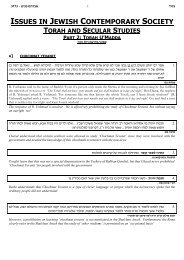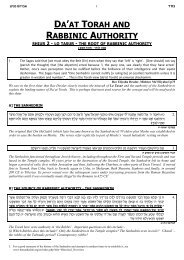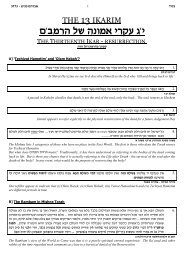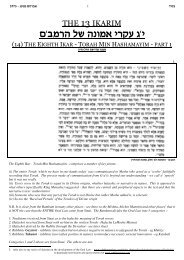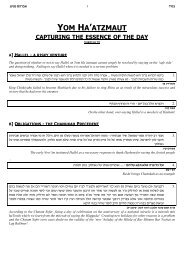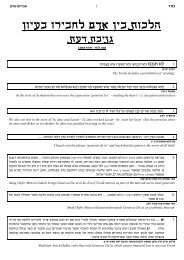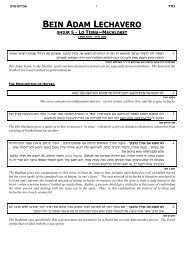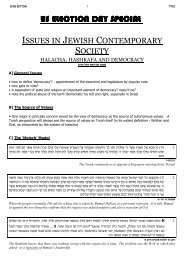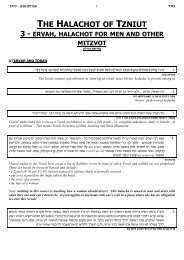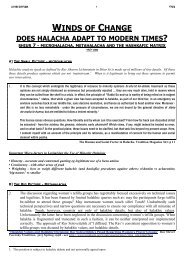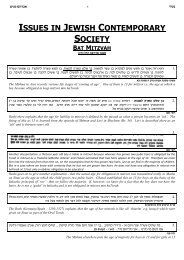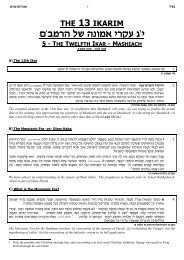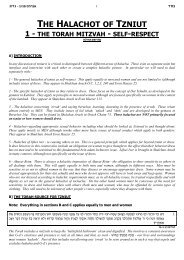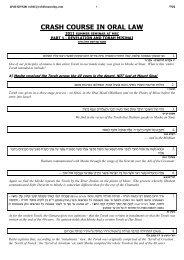Women Rabbis (Revised 5773) - Rabbi Anthony Manning
Women Rabbis (Revised 5773) - Rabbi Anthony Manning
Women Rabbis (Revised 5773) - Rabbi Anthony Manning
You also want an ePaper? Increase the reach of your titles
YUMPU automatically turns print PDFs into web optimized ePapers that Google loves.
<strong>5773</strong> - dbhbn ovrct6sxc/h"b kgppt h"rvn wufu v"gux c"uj wdv crv rehv hshsh////// vrybun t"ha, vfubjs wd v"c :rjchvku rujck ,ukufh ohab ot 26.hbcr okut /,hchxtpv vrhjcv ,t rxtu ,hchyetv vrhjc ,t rh,v k"z inpuv m"s r"dv /ohab ,rhjcc u,kta s"g ////,t rh,n kthzug hypan urpxc kthzug hatrv crvu ',hchyetv vrhjcv od urxt 'sugu k"z g"jrdvu k"z j"j kgc ifu h"tod 'kveu ruchm hbhhbgc euxg, vata ,ughbmv sdb uvza 'hrxun ogy ah ohrxutvk //// sjh od rjcvku rujck vrhjcvihta 'ovhkg ihbnzn iht ohbyeu ohscgu ohab 'v"n ,ufrcn ifu '"vfkn tku 'lkn" :z"be 'ohypua hrpxn whtr ohthcnkupkpc ,kgu, iht kct 'kpkpku ,ujsk ahu /a"hg 'rucm sucf hbpn vru,c tre, tk vat 'd"f vkhdnc ifu /vtb o,rcjoheung r,uh ohngy vzc ah hfyn, sung jke inhx t ekj at hshra ,"uaThis teshuva of the Seridei Eish (written 1951) deals with the issue of women’s right to vote and records the opinion ofmany early 20C opinions that it was totally assur. These opinions include the Chafetz Chaim, R. Chaim Ozer Grodzinskyand other authorities (R. Yehoshua Leib Diskin, R. Yosef Chaim Sonnenfeld, R. Yechiel Michel Tukachinski)27.(1919) pr, hra, eue ht r - ohab ,rhjc kg c,fnRav Kook was also totally against women voting on various grounds, including tzniutFollowing the radical shift in the structure of society over the last 90 years since WWI, orthodox women now vote withoutany hesitation and with full <strong>Rabbi</strong>nic approval. What changed? Evidently, women voting IS now tzanuah. Thus any issurbased on hilchot tzenuit is always a potentially moving target.B. META-HALACHIC~HASHKAFA ISSUES• <strong>Women</strong> rabbis would never be able to fill all the roles of communal rabbi (see above). Would their ordination thereforelead to a frustration amongst women rabbis which, itself, would impose pressure to pursue entirely non-halachicchoices?• <strong>Women</strong> <strong><strong>Rabbi</strong>s</strong> would be entirely rejected by a large proportion of the Orthodox world. Would this not thereforeintroduce a new element of friction and machloket into the community• Are there other fulfilling roles that women can be encouraged to pursue in Jewish learning and teaching? What abouteducation? toenot Beit Din? Yoetzot? Should these be encouraged or discouraged? Should there be a title of poseket oris this just as problematic as a woman <strong>Rabbi</strong>?• There is an issur to innovate in a way which would strengthen the position of sectarian Jewish groups,t vejh tka 'if vagh tk euacu `vfu,k osv xbfha khcac u,hc lu,c tnud vaug kct 'rehg kf tnudk ihyjua iht 28.(euj iuak vejh 'ovh,ueujc ovhsh ehzjh - h"ar) :[ohbhnv] oheusmv/tn ihkujThe Mishna prohibits shechita in a way which would give support to sectarian practices of ‘non-orthodox’ groups, eventhough the innovation is itself halachically permissible. There have always been such group - Samaritans, Sadduces,Early Christians. Today, this would apply to adopting practices which would strengthen the position of non-orthodoxgroups - Conservative, ReformThis has been applied over the last 200 years in various questions:-- prohibiting organs in synagogues- prohibiting flowers at funerals- prohibiting changes to synagogue design



